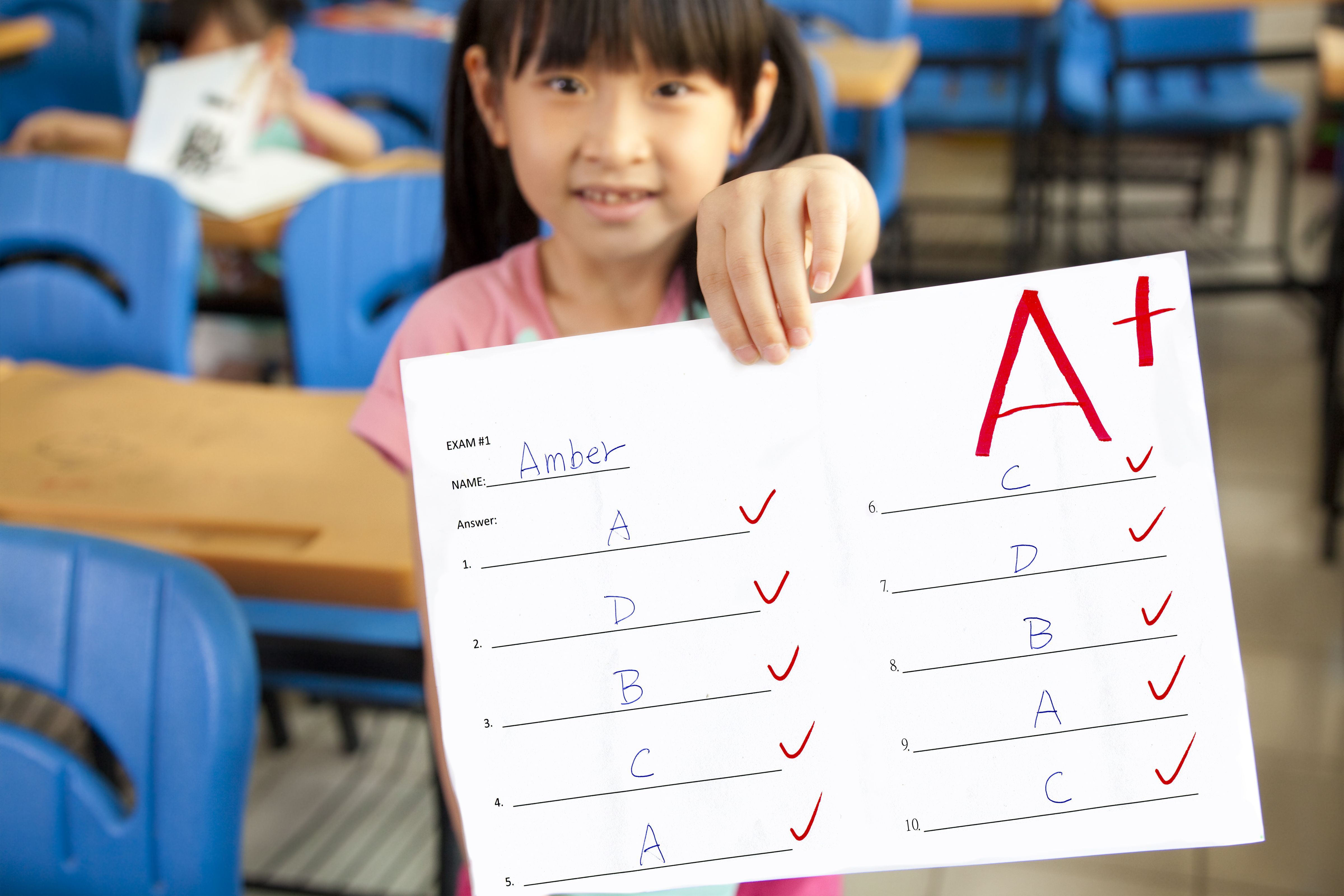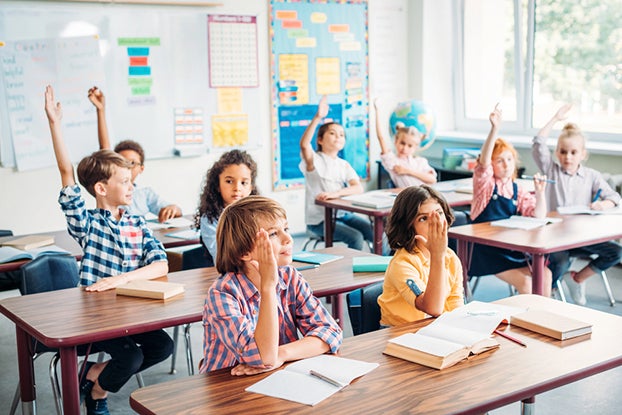Why Private School education stands apart from traditional learning
Wiki Article
Imaginative Knowing Activities in Kindergarten: Enhancing Skills Through Play and Interaction
Innovative discovering activities in preschool work as foundational experiences for young students (Grade School). These activities urge skill advancement via spirited interaction and social interaction. Children explore their creativity, boost communication, and learn useful social abilities. Each experience adds to their growth in one-of-a-kind methods. Comprehending how these activities form early development reveals the profound impact of play in education and learning. What certain aspects make these experiences so effective in nurturing all-round people?The Function of Play in Early Childhood Advancement
While numerous may take too lightly the significance of play, it offers as a fundamental part of early youth development. Through play, children discover their environments, foster social abilities, and create cognitive capabilities. Taking part in unstructured activities permits them to utilize their imagination, explore problem-solving, and improve their vital reasoning abilities. Play gives a safe space for psychological expression, enabling youngsters to browse their feelings and develop durability.Additionally, play encourages physical advancement as children participate in activities that improve their electric motor abilities and sychronisation. Interaction with peers throughout playtime advertises synergy and communication, preparing for future relationships. Grade School Peoria. Educators and parents identify that play is not merely an activity yet an essential facet of discovering, shaping a youngster's capacity to thrive and adapt in various circumstances. Eventually, play improves kids's lives, preparing them for the challenges of the future while promoting a long-lasting love for learning
Imaginative Arts and Crafts: Triggering Creative Imagination
Creative arts and crafts play a significant role in igniting kids's creativities and improving their imaginative abilities. These tasks motivate self-expression through different tools, such as paint, drawing, and sculpting. By taking part in hands-on jobs, kids learn to adjust materials, promoting great electric motor abilities and hand-eye control.Innovative arts offer a system for crucial and problem-solving reasoning, as youngsters discover various strategies and approaches to their developments. This expedition allows them to experiment, make choices, and gain from their experiences.
Collaboration is one more vital aspect, as children commonly collaborate on team jobs, sharing ideas and resources. This communication not just builds social skills yet likewise supports a sense of community. Inevitably, imaginative arts and crafts offer as vital devices in a kindergarten setup, advertising cognitive, psychological, and social advancement while sparking the innate inquisitiveness and creative imagination of young students.
Interactive Storytelling: Structure Language Skills
Interactive narration works as a powerful device for building language skills in children, as it engages them in the narrative procedure and urges energetic participation. Via narration sessions, children are welcomed to pay attention, respond, and also add to the unraveling tale. This interactive style supports vocabulary advancement by revealing them to new words in context.As they take part, youngsters exercise essential interaction abilities, such as articulation and expression. They discover to sequence events, recognize characters, and comprehend the story, cultivating important reasoning. Furthermore, interactive storytelling typically integrates visual aids, sound effects, and props, which additionally boost interaction and understanding.
In addition, when youngsters share their own stories, they experience a feeling of company and creative thinking, reinforcing their language abilities in a supportive atmosphere. Ultimately, interactive narration cultivates a love for language and literary works, setting a solid foundation for their future academic success.
Hands-On Science Experiments: Motivating Questions
Hands-on science experiments offer young learners with indispensable opportunities to explore and ask regarding the world around them. Participating in straightforward, interactive experiments allows kindergarteners to ask questions, make forecasts, and observe results firsthand. These tasks stimulate curiosity and foster a sense of wonder, encouraging kids to investigate the buildings of products, responses, and all-natural sensations.For example, experiments such as planting seeds or mixing baking soft drink and vinegar not just illustrate scientific ideas yet likewise enhance important believing abilities. Youngsters learn to document their monitorings, promoting proficiency and numeracy as they measure, compare, and document data. Additionally, hands-on science cultivates a growth frame other of mind, mentor strength as they important link browse difficulties and pick up from errors.

Collaborative Gamings: Promoting Synergy and Social Abilities
Taking part in joint video games offers kindergarteners an unique system to develop teamwork and social abilities while improving the inquiry-based discovering fostered by hands-on scientific research experiments (Grade School). These games encourage youngsters to work together toward usual objectives, promoting interaction and collaboration. As they navigate various challenges, they learn to share duties, work out duties, and solve problems-- important parts of effective team effortWith organized tasks such as team puzzles, relay races, or participating storytelling, youngsters not just enhance their social interactions yet also strengthen their psychological intelligence. They gain insights into empathy and assistance, discovering that each child's view publisher site payment is important. In addition, these collaborative experiences foster a feeling of community within the classroom, creating bonds that extend beyond private play. By integrating collaborative video games into the curriculum, educators can lay the groundwork for crucial life skills that will certainly profit children in their future educational and social environments.
Frequently Asked Questions
Exactly How Can Moms And Dads Support Creative Learning at Home?
Parents can support creative understanding in your home by providing diverse products, encouraging expedition, engaging in creative play, asking flexible inquiries, and fostering a secure setting where kids really feel free to share their concepts and creative thinking.
What Products Are Ideal for Arts and Crafts Activities?
A variety of products boost crafts and arts tasks, including building paper, scissors, glue, markers, paints, and recycled items. These sources influence creativity and enable children to discover their imagination with hands-on experiences.Just How Do Educators Analyze Children's Imagination?
Educators examine kids's imagination via monitorings, profiles of work, and open-ended tasks that motivate self-expression. They review analytic skills, originality, and determination to experiment, giving insights into each youngster's unique creative advancement and capabilities.What Are Some Examples of Outdoor Creative Activities?

Just How Can Cultural Themes Be Integrated Into Creative Knowing?
Social themes can be incorporated into creative knowing by incorporating diverse tales, songs, art, and traditions, encouraging children to discover and commemorate various histories, fostering inclusivity and understanding while enhancing their imagination and cognitive skills.Youngsters discover their creativity, enhance communication, and find out valuable social abilities. Through play, youngsters discover their atmospheres, foster social skills, and create cognitive abilities. Furthermore, play urges physical development as children engage in tasks that enhance their electric motor skills and coordination. Innovative arts and crafts play a considerable function in igniting kids's creative imaginations and enhancing their creative skills. Interactive storytelling offers as an effective tool for constructing language abilities in young youngsters, as it involves them in the narrative process and encourages energetic engagement.
Report this wiki page